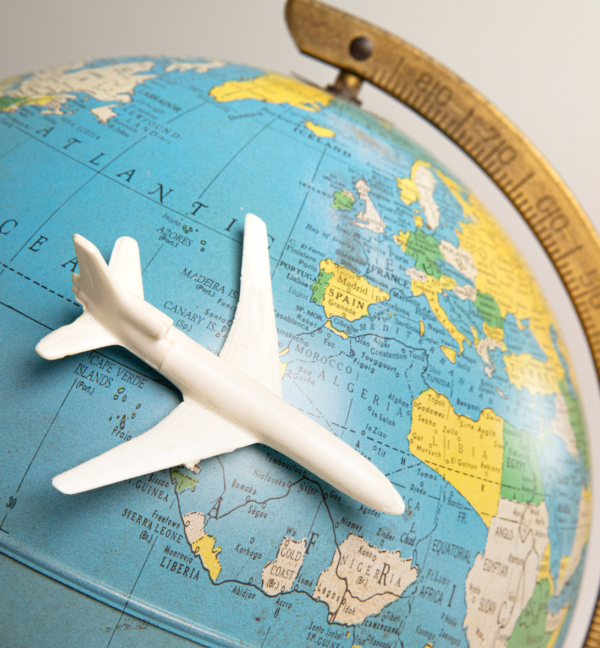
| Date | Author |
|---|---|
| 14th December 2022 | Joel Arber, SUMS Group Managing Director |
To meet their Net Zero Carbon goals, universities have got to get to grips with Scope 3. And that is where travel fits in.
Travel typically represents around 20% of most universities’ Scope 3 emissions. The trouble is, Procurement directors across the country are telling us that travel is like a switch that was turned off during the pandemic, and has now been switched back on again. Travel is quickly going back to how it was pre-Covid.
On the upside, it is an area where universities have got significant flexibility in the choices they make. There is clearly scope to reduce business travel. But you shouldn’t underestimate the challenge of this. It requires a fundamental shift in behaviours.
Let’s take a quick look at some good practice in the sector.
University of Edinburgh’s Business Travel Hierarchy
Edinburgh developed the sector-leading Business Travel Hierarchy as long ago as 2016 to help staff and managers to make better-informed decisions about their travel. The very first question is whether you need to travel at all, or would a videocall suffice. It is an easy-to-follow graphic, neatly split to help you navigate local, national and international travel. And some clear principles that sit with it – don’t fly for domestic travel; fly economy; and upgrade on the train so you can work and get a better experience. Travel also has to be booked using the University’s travel management company. This approach has been widely adopted across the sector and it mirrors commercial good practice. No one’s really doing anything too radical in this space. Edinburgh also publishes its travel data at business unit level. However, it is also a good example of how hard it is to change behaviour: in the three years following the introduction of the travel hierarchy pre-Covid, business travel emissions went up each year. Having the policy, the process, the measurement is great – but it will not work without culture change.
Lund University in Sweden
Led by the Centre for Sustainability Studies, Lund University in Sweden advocates ground travel for destinations within 12 hours – essentially across the whole of Europe. What is particularly interesting about the Lund approach is its recognition of the importance of culture change and desire to stimulate a low carbon culture by resisting our own Fear of Missing Out from not attending everything, and by encouraging academics to champion low-carbon research careers.
Balancing The Costs
Reducing carbon is a primary consideration for universities as they seek to define their approach to travel. But you do need to look at this in the round. When it comes to flying, choosing a lower carbon option – flying direct, flying on a newer plane – is something you can choose to do, but it is often the more expensive option. The same budget will buy you greener flights, but fewer of them.
And it is really important to factor in the human cost of travel – making sure employees are well rested and fit to do their jobs at the end of a long journey; that they are safe and well in what may be unfamiliar surroundings. So for instance, your travel policy may advocate using public transport on arrival at a destination. But lone travellers, vulnerable travellers, travellers to unusual destinations would feel safer taking a licensed taxi, even if the carbon impact is greater.
Different institutions will set different priorities when it comes to considering the carbon cost versus the financial one – but it is really important that the needs of the traveller are foremost in your considerations.
It’s All About the Trade Offs
That is just one example of the many trade-offs you will need to think through as you define policy and institutional culture. Differing strategic priorities can muddy the waters. Is carbon reduction aligned with your internationalisation strategy? How can you provide global opportunities for students and staff when you’re trying to reduce your travel carbon footprint?

The key to this is making it everyone’s responsibility. Arming employees and students with the tools to make better decisions is important: clear policies, advice frameworks, a good travel management company, accurate data and reporting. But to ensure this is a shared agenda, taken seriously across the institution, you need devolved responsibility. Heads of School, Heads of Professional Service functions need to own this – manage travel carbon budgets as well as their travel financial budgets. They need to be able to weigh up the relative merits of travel business cases and assess their value to the organisation, to the individual.
It will not be easy – but it is only through changing the culture and having shared accountability that universities will be able to move the dial on this important agenda.








